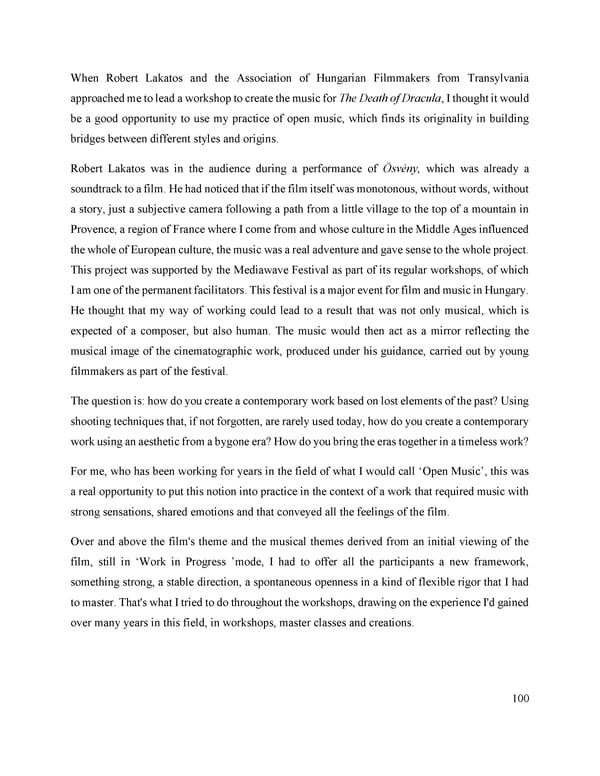When Robert Lakatos and the Association of Hungarian Filmmakers from Transylvania approached me to lead a workshop to create the music for The Death of Dracula, I thought it would be a good opportunity to use my practice of open music, which finds its originality in building bridges between different styles and origins. Robert Lakatos was in the audience during a performance of Ösvény, which was already a soundtrack to a film. He had noticed that if the film itself was monotonous, without words, without a story, just a subjective camera following a path from a little village to the top of a mountain in Provence, a region of France where I come from and whose culture in the Middle Ages influenced the whole of European culture, the music was a real adventure and gave sense to the whole project. This project was supported by the Mediawave Festival as part of its regular workshops, of which I am one of the permanent facilitators. This festival is a major event for film and music in Hungary. He thought that my way of working could lead to a result that was not only musical, which is expected of a composer, but also human. The music would then act as a mirror reflecting the musical image of the cinematographic work, produced under his guidance, carried out by young filmmakers as part of the festival. The question is: how do you create a contemporary work based on lost elements of the past? Using shooting techniques that, if not forgotten, are rarely used today, how do you create a contemporary work using an aesthetic from a bygone era? How do you bring the eras together in a timeless work? For me, who has been working for years in the field of what I would call ‘Open Music’, this was a real opportunity to put this notion into practice in the context of a work that required music with strong sensations, shared emotions and that conveyed all the feelings of the film. Over and above the film's theme and the musical themes derived from an initial viewing of the film, still in ‘Work in Progress ’mode, I had to offer all the participants a new framework, something strong, a stable direction, a spontaneous openness in a kind of flexible rigor that I had to master. That's what I tried to do throughout the workshops, drawing on the experience I'd gained over many years in this field, in workshops, master classes and creations. 100
 Lost Analogue: Exploring Film, Music, and Interdisciplinary Methods in Education Page 100 Page 102
Lost Analogue: Exploring Film, Music, and Interdisciplinary Methods in Education Page 100 Page 102